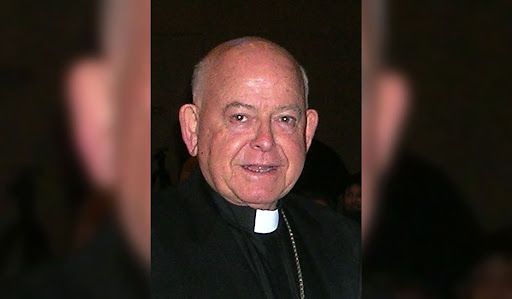The bishops, he said, “need to clearly state that we exhort our president and legislators, all people, to prioritize the well-being of women, children and families with both material resources and personal accompaniment so that no woman ever feels forced to choose between her future and the life of her child.”
He urged the Biden administration to fund only programs and approve policies that recognize the dignity and sanctity of human life.
“Taxpayer funding abortion represents a serious failure to serve women in their maternity by funding despair and death instead of hope and life,” he wrote.
He cited Pope Francis calling abortion murder, and quoted the pontiff’s 2019 appeal to politicians “to treat the defense of the lives of those who are about to be born and enter into society as the cornerstone of the common good.”
Pfeifer recognized abortion — “the direct killing of the unborn” — as the “antithesis of healthcare” for both the mother and her unborn child. He called prayer “central” to overturning Roe, blocking funding for abortion, and working toward a culture of life.
Bishop Michael D. Pfeifer, O.M.I., Bishop Emeritus of San Angelo, releases a new pro-life pastoral statement.
“The Biden Administration 2023 Budget targets the Hyde Amendment and other limits on taxpayers funding abortion.”
Read the full text here: pic.twitter.com/ycdFBLUIYx
— Katie Yoder (@k_yoder) April 29, 2022
Church teaching on abortion
The Catholic Church condemns abortion in the strongest possible terms. The Catechism of the Catholic Church, which summarizes Church teaching, recognizes the inherent dignity and worth of the unborn human person and considers abortion a “crime against human life.”
“Human life must be respected and protected absolutely from the moment of conception,” the catechism reads. “From the first moment of his existence, a human being must be recognized as having the rights of a person — among which is the inviolable right of every innocent being to life.”
At the same time, the Church emphasizes mercy and forgiveness for women who have obtained abortions.
“The Church does not thereby intend to restrict the scope of mercy,” the catechism says, but instead “makes clear the gravity of the crime committed, the irreparable harm done to the innocent who is put to death, as well as to the parents and the whole of society.”
(Story continues below)
In his 1995 encyclical Evangelium Vitae, which Pfeifer cites, St. John Paul II addressed abortion in light of politics.
“I repeat once more that a law which violates an innocent person’s natural right to life is unjust and, as such, is not valid as a law,” he wrote. “For this reason I urgently appeal once more to all political leaders not to pass laws which, by disregarding the dignity of the person, undermine the very fabric of society.”
The “Church encourages political leaders, starting with those who are Christians, not to give in, but to make those choices which, taking into account what is realistically attainable, will lead to the re- establishment of a just order in the defence and promotion of the value of life,” he added.
The Congregation for the Doctrine of the Faith discussed the late pontiff’s teaching in its 2002 doctrinal note on “The Participation of Catholics in Political Life.”
“John Paul II, continuing the constant teaching of the Church, has reiterated many times that those who are directly involved in lawmaking bodies have a grave and clear obligation to oppose any law that attacks human life,” it read. “For them, as for every Catholic, it is impossible to promote such laws or to vote for them.”
Credit: Source link




